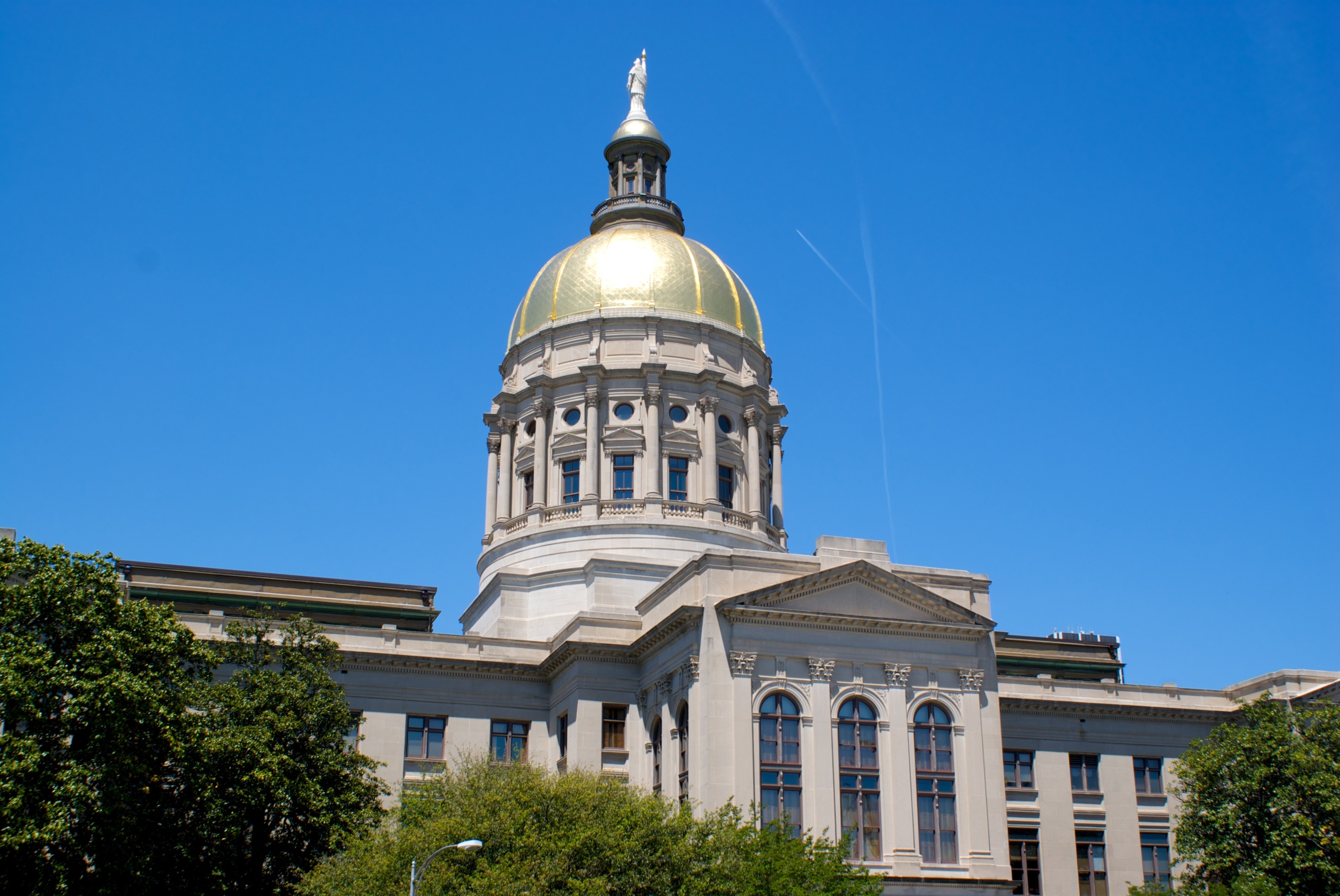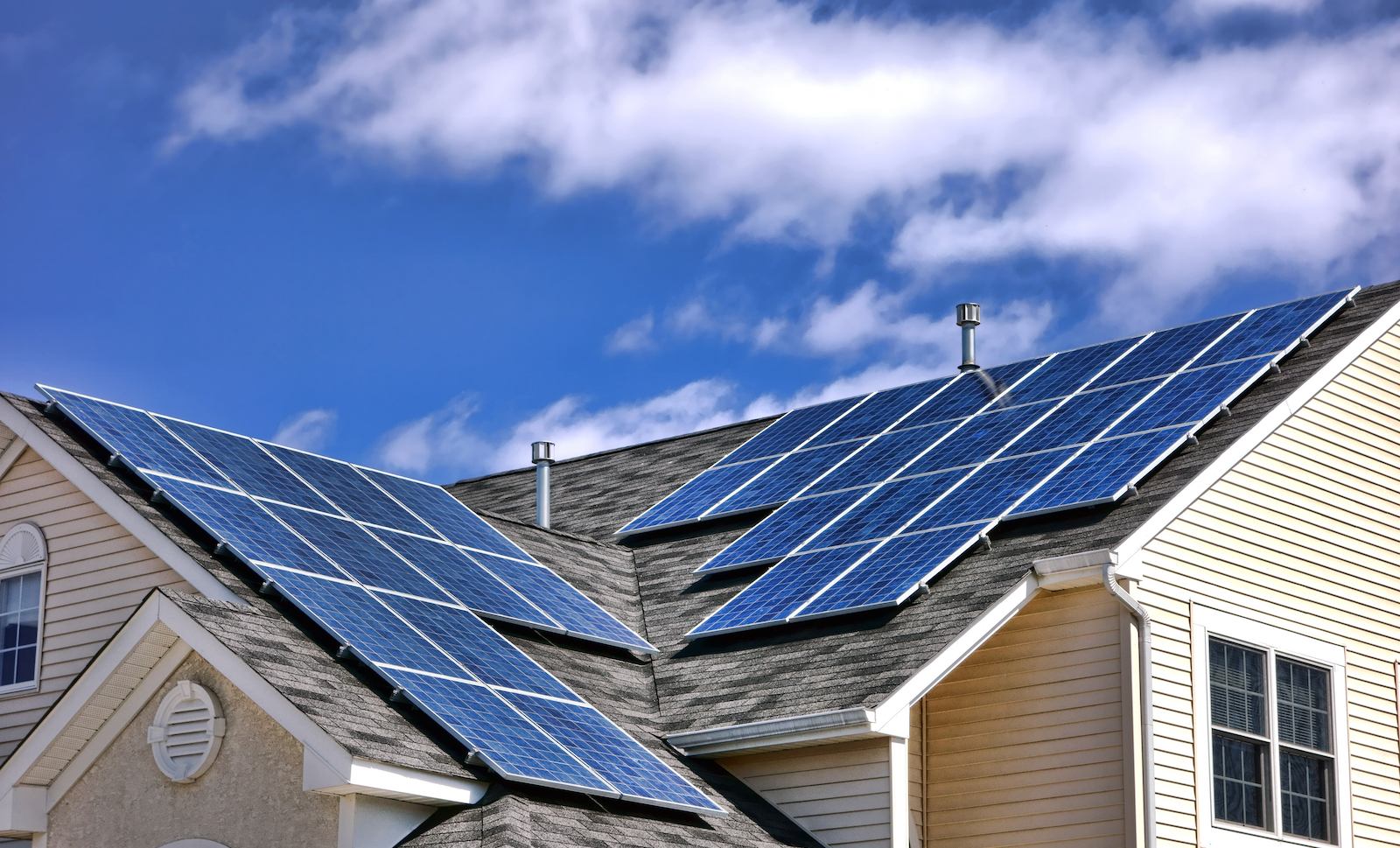
Solar on Superstores
How the Roofs of Big Box Stores Can Help America Shift to Clean Energy
Solar energy is expanding rapidly across the United States – increasing more than 100-fold over the past decade. But, there are still many untapped opportunities to harness the nation’s nearly limitless solar potential. The United States has the technical potential to produce more than 100 times as much electricity from solar photovoltaic (PV) and concentrating solar power (CSP) installations as the nation consumes each year. Given our abundant solar resources, America must take advantage of untapped opportunities to install solar technologies – like using rooftops of large superstores and “big box” retail stores as hosts for clean electricity generation.
Downloads
Executive Summary
Solar energy is expanding rapidly across the United States – increasing more than 100-fold over the past decade. But, there are still many untapped opportunities to harness the nation’s nearly limitless solar potential. The United States has the technical potential to produce more than 100 times as much electricity from solar photovoltaic (PV) and concentrating solar power (CSP) installations as the nation consumes each year. Given our abundant solar resources, America must take advantage of untapped opportunities to install solar technologies – like using rooftops of large superstores and “big box” retail stores as hosts for clean electricity generation.
The roofs of these large stores are perfect locations for solar panels – they are largely flat and vacant and almost always fully exposed to the sun. The big box stores, large grocery stores and malls considered in this report account for 5 percent of electricity use in the United States. Solar panels produce energy that can offset this large electricity demand while contributing to a cleaner grid. Rooftop solar power also brings benefits to the communities in which it is situated. By producing electricity close to its final point of use, distributed rooftop power reduces costs and energy losses associated with electricity transmission and distribution.
According to the National Renewable Energy Laboratory (NREL), the United States has the technical potential to generate enough electricity from rooftop solar installations alone to meet nearly a quarter of the nation’s electricity demand. The United States has more than 102,000 big box retail stores, supercenters, large grocery stores and malls with more than 4.5 billion cumulative square feet of available rooftop space on which solar panels could be installed.
The rooftops of America’s big box stores and shopping centers could host 62.3 gigawatts (GW) of solar photovoltaic capacity, equivalent to the amount of electricity used by more than 7 million average U.S. homes or more than 7,500 average Walmart stores, and more than triple the solar photovoltaic capacity that has been installed in the U.S. to date. (See Appendix B for state breakdowns.)
Figure ES-1: Potential Solar PV Capacity on Big Box Stores and Shopping Centers, by State (Megawatts)
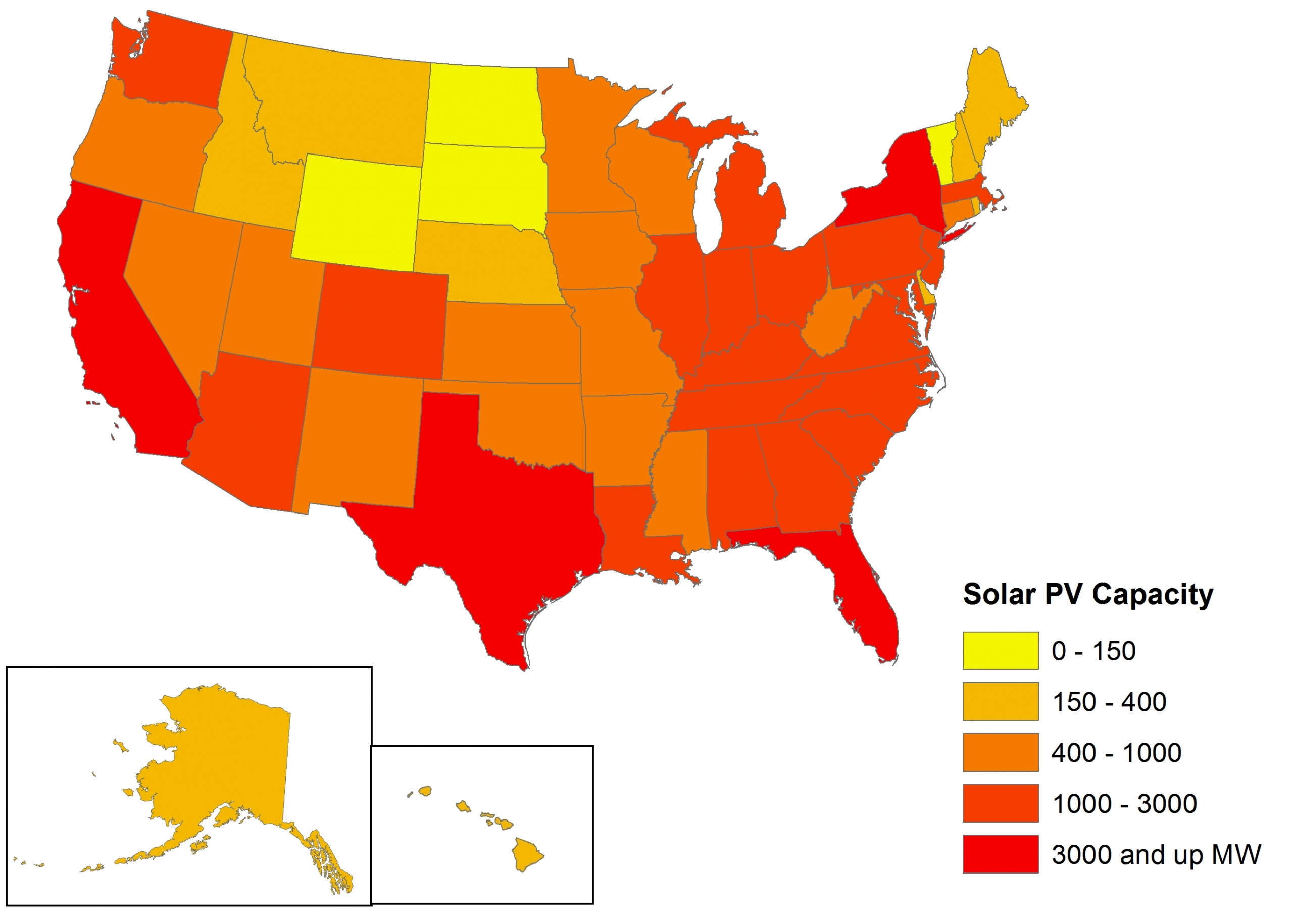
Putting solar panels on the nation’s big box grocery and retail stores creates unique benefits for the environment, electricity customers and the large commercial businesses themselves.
- Generating clean electricity from rooftop solar panels on existing commercial buildings is good for the environment. Installing 62.3 GW of clean solar power on America’s big box stores and shopping centers would reduce global warming pollution by nearly 57 million metric tons annually – equivalent to taking nearly 12 million passenger vehicles off the road.
Figure ES-2: Annual Reductions in Global Warming Pollution with Solar Panels on Available Big Box Stores and Shopping Centers by State (Metric Tons CO2)
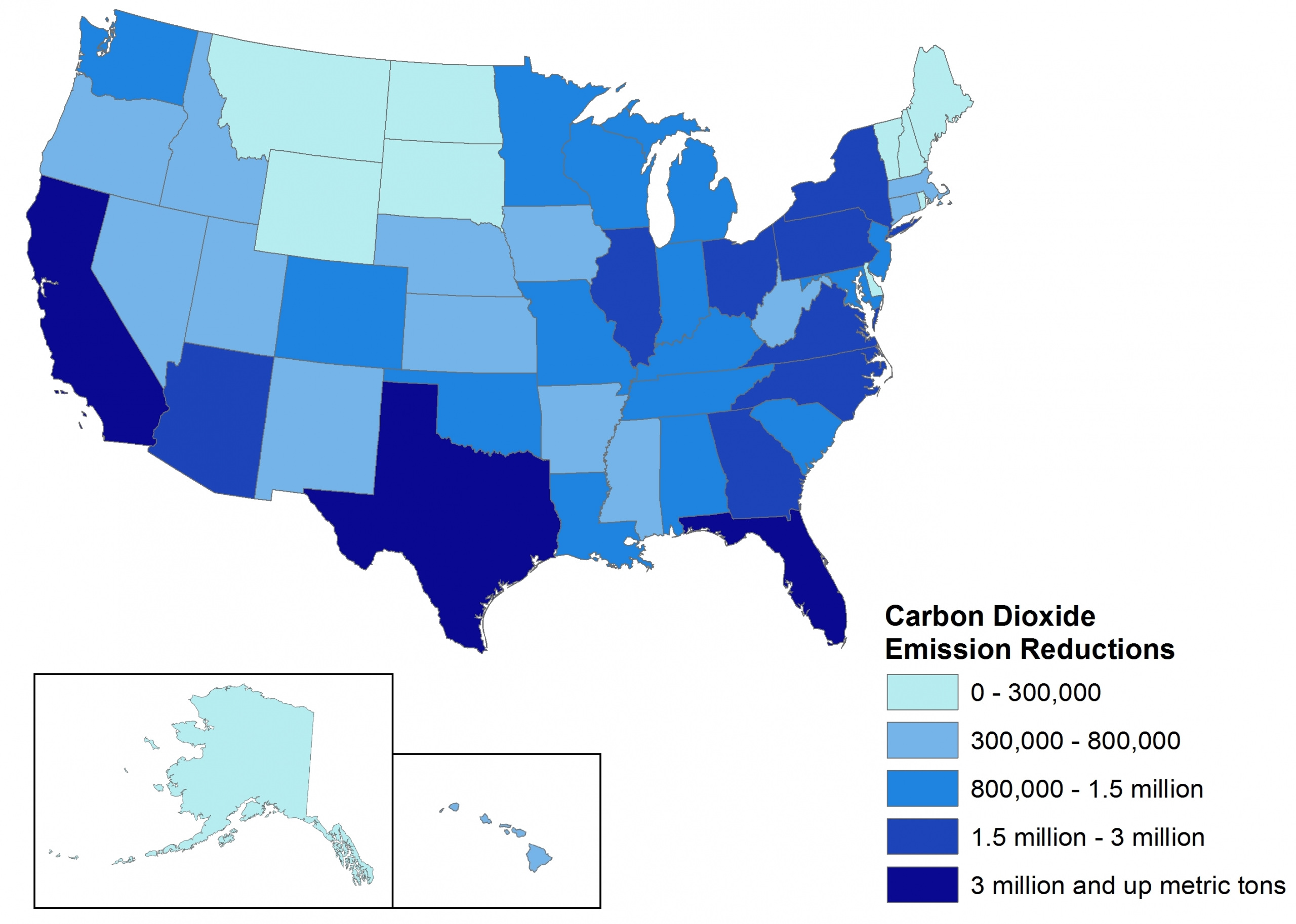
- Rooftop solar power is good for the grid and electricity consumers. Producing electricity on rooftops, close to where the electricity will be used, reduces losses that happen during electricity transmission – losses that totaled an estimated 203 million megawatt-hours (MWh), or 5 percent of electricity sales in 2012. Solar power also reduces costs by producing the most electricity during the sunniest parts of the day, which are often when demand for electricity peaks. This helps utilities avoid firing up expensive, peaking power plants to meet the temporary rise in demand.
- Putting solar panels on the roofs of big box stores is good for business. Electricity produced by rooftop panels on big box stores and shopping centers could offset the annual electricity use of these buildings by 42 percent, saving these businesses $8.2 billion annually on their electricity bills.
Many big box retail stores are already reaping the benefits of installing solar power on their rooftops.
- Of the businesses evaluated by the Solar Energy Industries Association (SEIA), Walmart, Costco, Kohl’s, IKEA, and Macy’s were the retail giants with the most solar capacity installed as of the end of 2015. Walmart has at least 142 MW of total on-site installed solar capacity.
- From the same survey, the top 25 companies have installed a total of 1,462 solar energy systems at business locations across the United States.
- The 10 big box companies with the largest amount of retail space in the U.S. – Walmart, Target, Home Depot, Lowe’s, Sears Holdings (including Sears and KMart), Macy’s, J.C. Penney, Kohl’s, Costco, and TJX (including Marshall’s and TJMaxx) – have enough rooftop space to host approximately 17 GW of solar capacity on their retail stores, or nearly three quarters of the United States’ current solar PV capacity.
- Solar-powered businesses are saving money on their electricity bills and contributing to a cleaner and more resilient electricity grid. By installing solar panels on two California stores, Costco reported savings of $300 per day on average over three months.
Implementing local, state and federal policies that promote the growth of rooftop solar power – like net metering, third-party financing, community solar power programs, streamlined solar permitting and interconnection and tax credits and incentive programs for new solar energy markets – can spur the development of rooftop solar power on America’s big box stores and help America reach its solar potential. Officials at all levels of government should implement solar-friendly policies that help to accelerate adoption of solar energy by America’s businesses.
Topics
Find Out More


Recording of Rooftop Solar on the Rise webinar
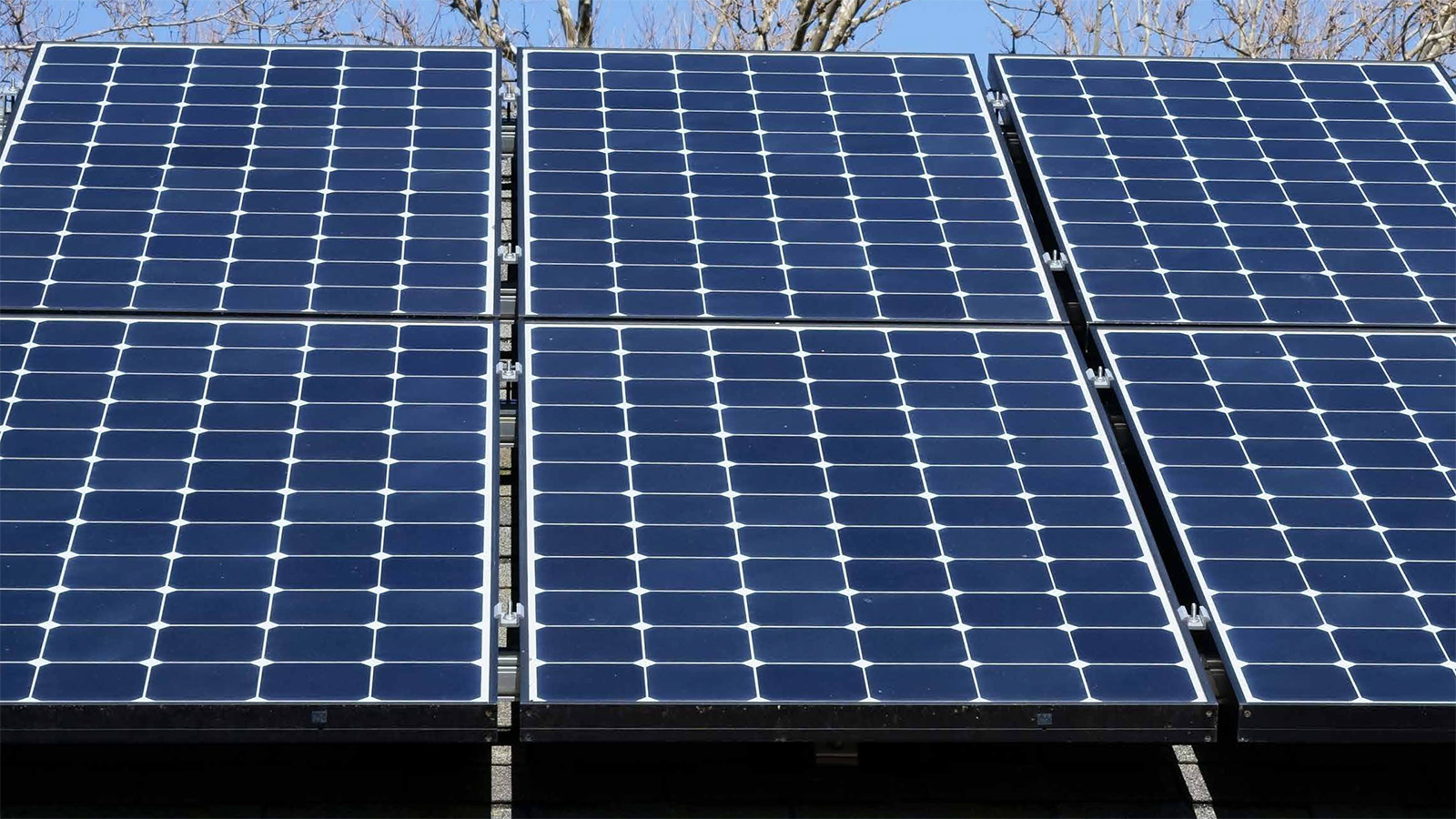
Rooftop solar on the rise
